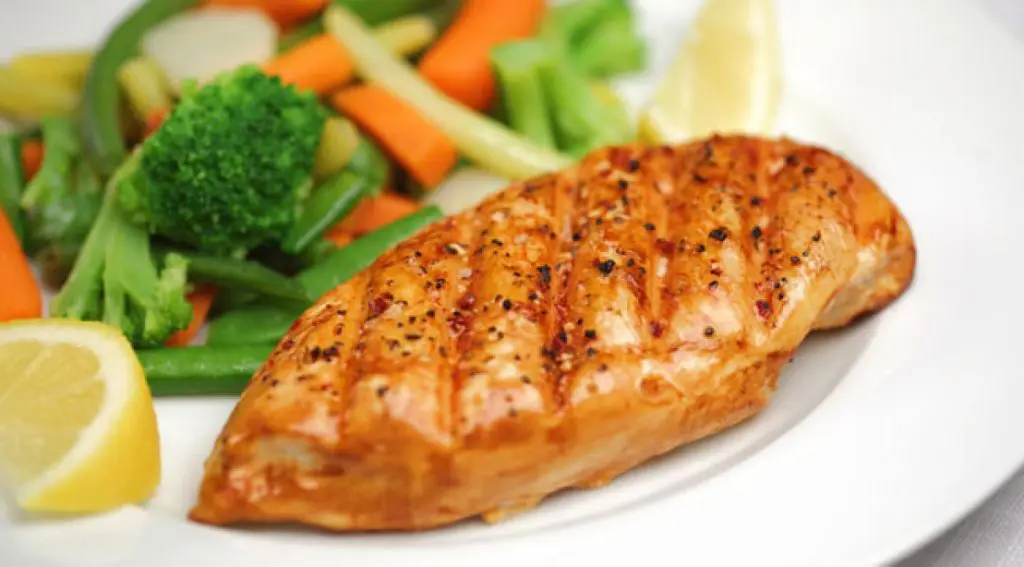Ideal body without dieting?
If you are seeking permanent, sustainable fat loss, then a change in lifestyle will produce the desired results rather than a temporary dietary change that induces short-term weight loss but will alter hormone response for the long-term. Research in the New England Journal of Medicine shows that using a low-carb, high-protein diet for the long-term- participants in this study were observed for over two years-lead those involved to have better-eating habits that support weight loss, and the maintenance of their new body composition.
The study used a lifestyle intervention program that taught participants how to eat primarily low-glycemic carbs, that included a diet high in protein, and that did not restrict fat intake. This diet did not restrict calories, but carb intake was limited to 120 grams per day, mainly from vegetable sources. This diet was compared to a low-fat, calorie–restricted diet of 1,500 calories for women and 1,800 calories for men.
Results showed that participants on the low-carb diet lost more weight, 4.7 kilograms as compared to 2.9 kilograms in the low-calorie group, and that was because the diet improved the insulin and hormone response to eating. These hormonal changes induced numerous biochemical changes that led to better maintenance of body composition. The low-carb diet also decreased markers of systemic inflammation and produced better cholesterol levels, as well as blood sugar regulation, than the low-calorie diet.
An interesting new Swedish study provides support for full-fat eating, finding that a high-fat, low-carb diet can help you lose fat. The study used two energy-restricted diets of 1,600 calories a day for women or 1,800 calories a day for men with the following macronutrient ratios: the low-carb diet included 50 percent fat, 20 percent low-glycemic carbs, and 30 percent protein, while the low-fat diet included 30 percent fat, 60 percent carbs, and 10 percent protein. Participants were all type II diabetics, and researchers measured cholesterol levels, blood pressure, insulin and glucose levels, and weight loss.
Results showed that both groups lost equal amounts of weight after six months (four kilograms), but the low-carb diet produced better blood sugar regulation with much lower glucose levels than the low-fat diet. Insulin levels were decreased by 30 percent because the low-carb content produced better blood sugar regulation. This group also had dramatic improvements in cholesterol markers, with HDL cholesterol increasing more than on the low-carb diet, despite eating 20 percent of the diet from saturated fat. Blood pressure also decreased more from eating a low-carb, high-fat diet than from eating a low-fat diet.
This study is not first of its kind to show that smart fats aren’t bad, although it may be revolutionary for some nutritionists and obesity experts who are constantly counseling low-fat, whole grain eating. Be aware that in order to use a high-protein, high-fat diet for health and body composition, you do have to be smart about it. Don’t start eating trans-fats, processed foods, or grain-fed meats from factory farms. Instead, there are certain guidelines to follow so that this will lifestyle change will be both effective, and healthy.
Protein
Eat a large portion of your diet from a variety of animal protein sources. Make sure at least 20 to 30 percent of your diet is from animal protein. Ideally, choose organic grass-fed, finished beef, or wild meats for protein. These animal protein sources include high omega-3 content as well.
Carbs from Fruit and Vegetables

Avoid Soda and Alchohol Drinks

There is no need to ever restrict fat intake, and consider eating as much as 50 percent of your diet from healthy fats. Ensure you get adequate omega-3 fats as well. Avoid all trans and hydrogenated fats. When choosing saturated fats to eat, opt for those that contain stearic and lauric acid, rather than palmitic or myristic acid, because the last two may elevate LDL cholesterol.
Happy Lifting!
Tip: If you're signed in to Google, tap Follow.










